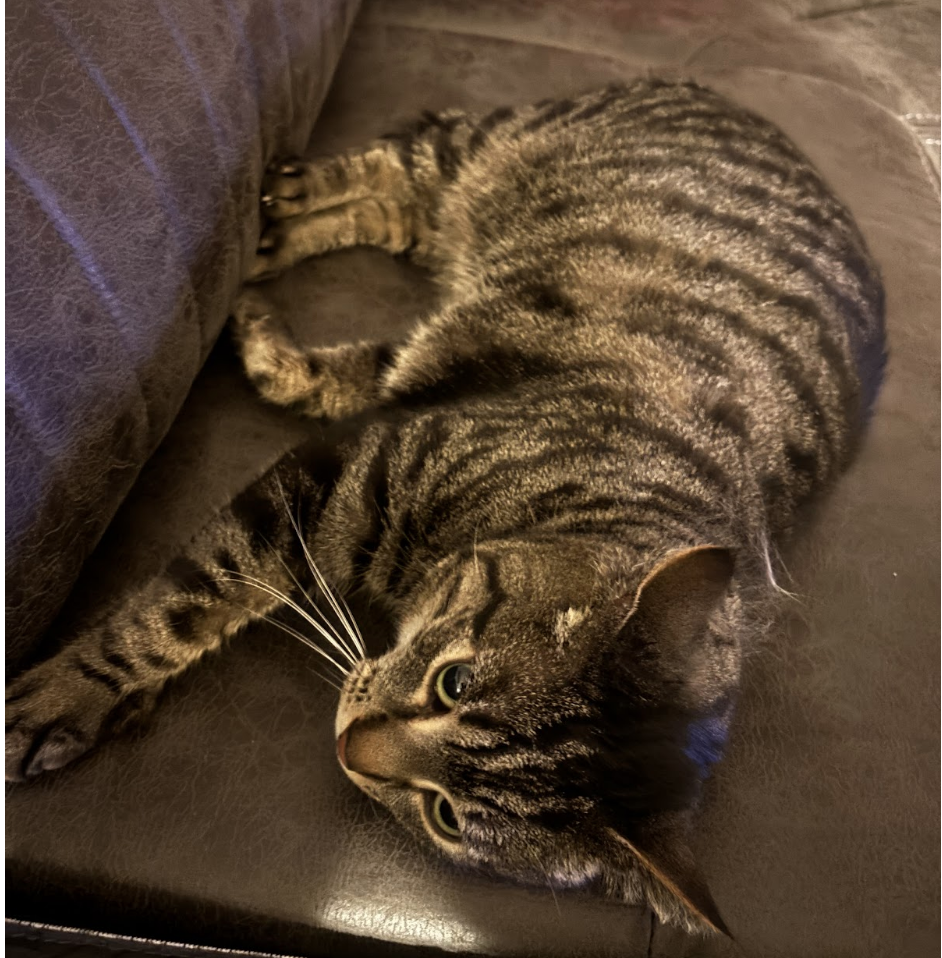I watch my cat stare out the window for what feels like hours. No phone, no distractions, just the wind in the trees and the occasional bird. It makes me wonder: does she know she’s watching the world? Or is she just… there?
The idea that animals might have thoughts, preferences, or even a sense of self isn’t new, but it’s still deeply debated.Are our pets truly aware, or are they simply responding to the world around them without understanding it? And how much do we project our own thoughts onto them just because we want them to be more like us?
A lot of conversations about animal self-awareness start with something called the mirror test. Basically, an animal gets marked in a spot it can’t see, then placed in front of a mirror. If it notices the mark on its own body and tries to investigate it, scientists take that as a sign the animal recognizes itself. Some species, like great apes, elephants, dolphins, and even magpies, have passed the test. Cats usually don’t. They tend to either ignore their reflection or treat it like another cat entirely. But failing the test doesn’t necessarily mean they aren’t conscious. It could just mean they don’t care about mirrors, or that vision isn’t the primary way they understand the world. So the test itself might not be wrong, but its definitely not the full picture.
Scientists are increasingly viewing consciousness as something that exists on a spectrum, not as something an animal either has or doesn’t. Some animals clearly show signs of self awareness in ways that don’t involve mirrors. Dogs, for example, can recognize their own scent. Octopuses solve puzzles and even use tools. Parrots don’t just repeat words, they sometimes use them with surprising context and purpose. All of this points to a kind of mental map animals seem to hold of their world, and in many cases, of themselves in that world. A cat might not stare into a mirror and think, “That’s me,” but it definitely remembers where the treat cabinet is, who feeds it, and which spots in the house feel safest. That kind of memory and emotional awareness says a lot.
What makes all of this even more interesting is how much of a cat’s inner world we don’t get to see. Cats are naturally private, often quiet, and a little mysterious, so it’s easy to overlook how sharp or self aware they really are. They don’t show their intelligence the same way dogs might, but anyone who’s lived with a cat knows they have clear preferences, habits they stick to, and a surprising sense of social order. They remember things. They expect things. Sometimes they even seem like they’re getting back at you on purpose. Sure, they probably don’t think about themselves the way we do, but that doesn’t mean they’re not thinking or feeling. They just move through the world in a way that’s very much their own.
So does my cat know she exists? Probably not in the abstract, philosophical sense. She’s not reflecting on her childhood or planning for tomorrow. But she knows what she wants, remembers what she’s learned, and responds to her world with intention. She’s not just reacting—she’s adapting, choosing, navigating. That might not be self awareness in the human sense, but it’s still a form of presence, of being. Sometimes, I think that’s enough.









MJ • Jul 3, 2025 at 1:47 am
You raise a really fascinating topic here. I believe that a cat’s awareness of itself is lost in domestication. I think that wild animals are aware and domestication takes away the from the wild awareness that is ingrained in the psyche. The opposite can be observed in us as we are part of society from our rearing is development of identity. There are tidbits in domesticated animals of this but not fully developed like ourselves. So I think we have the same understanding here.
Walter • Apr 28, 2025 at 11:15 am
Wow, interesting insight. Amazing paper ! Meow !
Sonia • Apr 28, 2025 at 11:04 am
This is such a thoughtful and beautifully written reflection. You’ve captured the quiet mystery of cats—and animals in general—in a way that’s both insightful and deeply empathetic. The idea that presence and awareness don’t have to look like ours to be meaningful is powerful. Your cat may not think in words, but she’s clearly experiencing the world, and you’ve done a wonderful job honoring that.